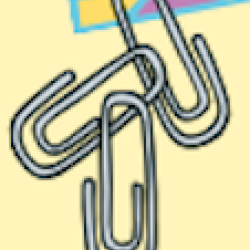Source Institutions
Source Institutions
Add to list Go to activity
Activity link broken? See if it's at the internet archive

In this activity, learners separate materials based on their special properties to mimic the way recyclables are sorted at recycling centers. Learners observe if various objects are attracted to a magnet, are attracted to a balloon, and float on (or sink in) water. Use this activity to discuss recycling as well as magnetism, static electricity, cohesion and density.
- Under 5 minutes
- 10 to 30 minutes
- $1 - $5 per student
- Ages 6 - 11
- Activity, Experiment/Lab Activity
- English
Quick Guide
Materials List (per student)
- Plastic straw
- Blunt-end scissors
- Metric ruler
- 1 latex balloon
- 1 square of aluminum foil (5 x 5 centimeters, about 2 inches square)
- 1 square of paper towel (5x5 centimeters, about 2 inches square)
- 5 metal paper clips (small ones about 3 centimeters, about 1 inch in length)
- 1 piece of windowscreening (20 x 30 centimeters, about 8 x 12 inches)
- Rectangular cake pan (about 32 x 23 x 5 centimeters or 9 x 12 inches)
Subjects
-
Engineering and Technology
-
Engineering
- Environmental Engineering
- Metallurgy and Materials Engineering
-
Engineering
-
Physical Sciences
-
Electricity and Magnetism
- Electric Charges and Currents
- Electromagnetic Fields
-
Chemistry
- Chemical Bonding
-
States of Matter
- Solids
- Liquids
-
Structure and Properties of Matter
- Atomic Structure
- Volume and Density
-
Electricity and Magnetism
-
The Nature of Science
-
The Scientific Process
- Conducting Investigations
- Gathering Data
- Formulating Explanations
- Communicating Results
-
The Scientific Process
-
The Nature of Technology
-
Technology and Society
- Technology and the Environment
-
Technology and Society
Informal Categories
- Nature and Environment
Audience
To use this activity, learners need to:
- see
- touch
Learning styles supported:
- Uses STEM to solve real-world problems
- Involves hands-on or lab activities
Other
Access Rights:
- Free access
By:
- Office of Community Activities, American Chemical Society
Rights:
- All rights reserved, American Chemical Society,
